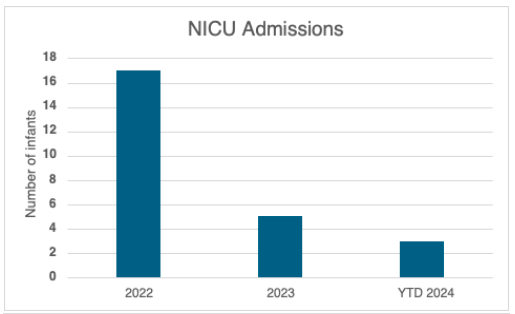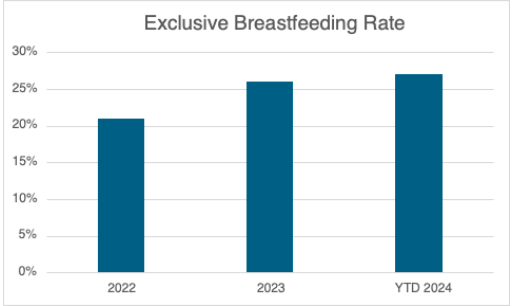Breastfeeding/Human Milk 3
Session: Breastfeeding/Human Milk 3
677 - "Sweet Solutions: Treating asymptomatic term and late preterm hypoglycemic infants with glucose gel to promote exclusive breastfeeding and decrease NICU admissions."
Saturday, April 26, 2025
2:30pm - 4:45pm HST
Publication Number: 677.4030
Shaeequa P. Dasnadi, Texas Children's Hospital, Sugarland, TX, United States
- SD
Shaeequa P. Dasnadi, MBBS (she/her/hers)
Associate Professor
Texas Children's Hospital
Sugarland, Texas, United States
Presenting Author(s)
Background: Neonatal hypoglycemia is common in late preterm and term infants, with significant risks if untreated. Traditional management, such as formula feeding or NICU admission, disrupts exclusive breastfeeding and bonding, raises healthcare costs, and increases parental stress. The 2013 "Sugar Babies" study by Harris et al. introduced 40% oral glucose gel as an effective, simple treatment for neonatal hypoglycemia, reducing NICU admissions and supporting breastfeeding. Our project builds on this by implementing a nurse-driven protocol that uses glucose gel as the primary intervention. Through staff training and clear algorithms, we aim to improve hypoglycemia management, reduce NICU admissions, and enhance family-centered care.
Objective: Using a nurse-guided algorithm to treat asymptomatic hypoglycemia in late preterm and term infants with glucose gel, rather than formula, can reduce NICU admissions, increase exclusive breastfeeding rates, and enhance family bonding.
Design/Methods: Using the AAP hypoglycemia guidelines, we developed an easy-to-follow, nurse-driven algorithm for screening and managing at-risk infants. Nurses, physicians, and nurse practitioners received extensive education through various resources: posters, laminated algorithm copies at each station, badge-sized guides, an instructional video with a quiz, and shift-based education sessions. Weekly audits ensured compliance, with re-education provided as needed.
Results: NICU admissions for hypoglycemia dropped from 17 infants in 2022 to 5 in 2023, and only 3 so far in 2024 after implementing glucose gel. Exclusive breastfeeding rates increased from 21% in 2022 to 26% in 2023, reaching 27% in 2024.
Conclusion(s): Implementation of a nurse-driven protocol for managing neonatal hypoglycemia using 40% glucose gel has demonstrated clear benefits, including a substantial reduction in NICU admissions and an increase in exclusive breastfeeding rates. This simple, cost-effective approach not only minimizes mother-infant separation but also supports family bonding and reduces the reliance on formula supplementation. By educating and empowering nursing staff with clear, accessible tools and consistent re-education efforts, we achieved high compliance with the protocol. This program highlights the impact of streamlined, evidence-based interventions in improving neonatal care and family-centered outcomes.
Hypoglycemia management algorithm
.jpg)
Decrease in NICU admissions

Improvement in Exclusive Breastfeeding rates


